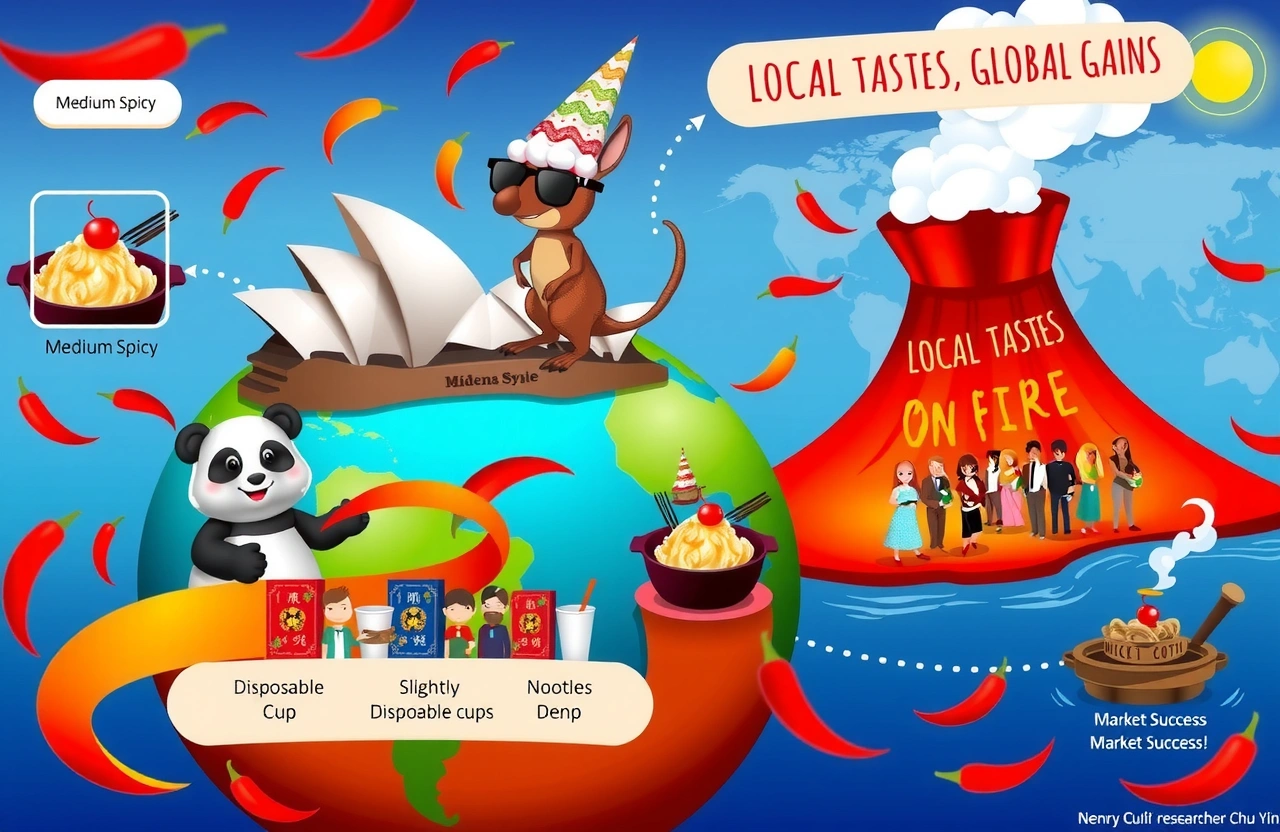The Global Success of Chinese Street Food Brands
While multinational corporations struggle to penetrate foreign markets, humble Chinese street food brands like spicy hotpot and Mixue Ice City are quietly conquering taste buds worldwide. At the recent 2025 China Enterprise Globalization Summit held in Shenzhen, researcher Chu Yin (储殷), a PanGu Institute scholar renowned for his insights on cultural adaptation, revealed eye-opening trends about culinary globalization. These seemingly simple businesses are yielding impressive results: Mixue Ice City reportedly achieved over AU$300,000 in daily revenue at prime Sydney locations. Their unexpected success demonstrates how smart localization—not universal replication—creates sustainable overseas expansion.
Core Challenges Facing Globalizing Chinese Companies
Chinese businesses increasingly compete on international stages, yet many encounter identical pitfalls. Chu Yin, leveraging extensive fieldwork across multiple continents, identifies fundamental barriers hindering successful globalization.
The Critical Question: Who Are You Selling To?
Most companies fail before launching due to misunderstood market dynamics. During his summit address, Chu Yin emphasized, “The primary challenge isn’t product quality—it’s knowing precisely whose needs you’re addressing.” Traditional approaches often assume domestic preferences translate directly abroad, leading to disappointing results. Analyzing successful cases reveals counterintuitive truths: spicy hotpot thrives internationally by transforming communal Chinese dining into individualized meals aligning with Western eating habits.
The Danger of Copy-Paste Business Models
Companies frequently transplant entire operational structures overseas, causing adaptation failures. Supply chains designed for Chinese infrastructure collapse when applied to markets with differing labor costs or distribution networks. Chu Yin cited temporary victories masking deeper issues: “Initial successes using familiar models feel encouraging, but long-term sustainability requires fundamental restructuring.”
Localization: The Secret Sauce of International Success
Spicy hotpot and Mixue Ice City exemplify adaptive excellence through tailored market strategies. Their methods provide blueprint strategies for any business targeting international consumers.
Spicy Hotpot’s Structural Transformation
The brand reimagined its core offering for foreign palates:
– Converted shared pots into single-serving formats
– Introduced spice-level customization to ease adoption
– Repositioned specialty ingredients like tofu skin as premium proteins
– Partnered with delivery apps dominating local markets such as Deliveroo in Europe
Mixue Ice City’s Hyperlocal Dominance Strategy
The beverage chain’s Australian triumph reveals meticulous localization:
– Adjusted sweetness levels to match regional preferences
– Developed exclusive flavors using native fruits like finger lime
– Staffed stores with bilingual Chinese diaspora students
– Designed seasonal campaigns around local holidays
Building Cultural Bridges for Market Entry
Chu Yin champions leveraging overlooked resources that provide authentic market intelligence.
The Diaspora Advantage: Students and New Immigrants
Overseas communities offer priceless cultural translation. Unlike corporate transplants, they intuitively understand nuances in consumer behavior. Brands should actively recruit these groups as:
– Test market coordinators for product iterations
– Community engagement specialists
– Cultural adaptation consultants during R&D cycles
Beyond Translation: Cultural Intelligence Systems
Entrepreneurs need frameworks interpreting cultural codes:
– Map regional dining occasion patterns
– Identify consumption context differences
– Decode subtle communication barriers
– Track perceived value thresholds
The 2025 Enterprise Globalization Summit Breakdown
This landmark event united industry trailblazers navigating international expansion complexities.
Forum Structure and Key Focus Areas
Hosted by Phoenix Media with joint support from Snow Beer’s luxury brand Li and China Enterprise Globalization Council, the June 28-29 gathering centered on “Creating an Open World”. Key sessions addressed:
– Intellectual property protection across jurisdictions
– Overcoming supply chain localization hurdles
– Cross-cultural marketing analytics
Phoenix Finance provided comprehensive summit coverage exploring themes discussed.
Sponsor Spotlight: Snow Beer’s Strategic Positioning
Sponsor Snow Beer leveraged the forum to promote its ultra-premium brand Li, signaling ambitions beyond domestic dominance. Their presence highlights beverage category competitiveness in export markets.
Practical Roadmap for Market Adaptation Success
Chu Yin distilled actionable steps businesses must implement.
Market Entry Validation Checklist
Before launch, verify:
1. Tested prototype products with diverse demographics
2. Developed tiered pricing for local income segments
3. Audited supply partners for regulatory compliance
4. Created localized crisis response protocols
Operational Transition Framework
Phase internal evolution:
1. Adaptation Stage: Modify products/service delivery
2. Integration Stage: Blend Chinese/core advantages with local workflows
3. Innovation Stage: Develop market-specific offerings
The Future of Global Consumer Expansion
As Chinese lifestyle brands accelerate overseas growth, intelligent localization remains imperative. The spicy hotpot and Mixue Ice City cases prove addressing fundamental questions—”Who serves this market best?” and “What makes experiences authentically valuable?”—trumps standardized scale. Businesses embracing cultural agility will ride the next wave of globalization. Track Phoenix Finance’s ongoing forum analysis for emerging market insights, and consider joining the next China Enterprise Globalization Council meeting to connect with localization experts.




